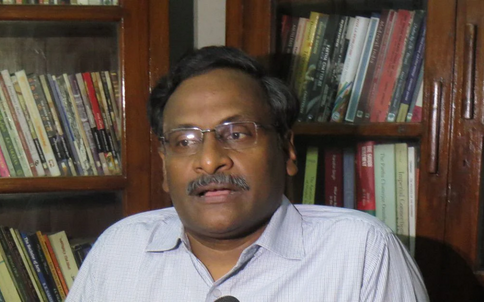The Supreme Court on Saturday ruled that GN Saiababa, former Delhi University Professor, who is serving a life term for alleged Maoist links, will continue to stay in jail. The SC has suspended the Bombay High Court (Nagpur Bench) order on his acquittal. On Maharashtra government’s plea challenging the High Court judgment the SC Bench has issued notice to the accused and listed the matter for hearing on December 8. It means the SC felt that there is no hurry in further hearing the matter. The SC Bench comprised Justice MR Shah and Justice Bela M. Trivedi. The decision of the SC has disappointed many of Saibaba’s sympathizers.
The Bombay High Court on Friday said the trial in Gadchiroli sessions court is null and void saying that there is no evidence to prove that the former professor had any links to the Maoists. The HC said there is no basis for arrest under Unlawful Activities (Prevention) Act –UAPA. The high court said the UAPA is not maintainable. It order the release of Saibaba and five others including a journalist and a student of JNU. Within hours of HC judgment, the Maharashtra government has challenged it in Supreme Court.
While passing the order, the Supreme Court Bench refused to accept Saibaba’s request to house arrest on medical grounds, saying the academic has been convicted for a serious offence. Senior Advocate Basant, appearing for Saibaba, requested for house arrest pointing out that the accused was physically disabled to the extent of 90 percent. “My client is 90 per cent disabled, has multiple ailments. He is confined to his wheel chair,” said Basant. Prof. Saibaba was arrested in February 2014. He is at present is lodged in Nagapur jail. He was convicted by Gadchiroli Sessions Court in March 2017.
Though Saturday is a holiday for the top court, it agreed to hear the appeal by Mahatashtra government on priority basis. Solicitor General Tushar Mehta forcefully argued that the acquittal is not valid under the stringent UAPA. It is a very powerful anti-terror law.




